The Suffering Never Ends
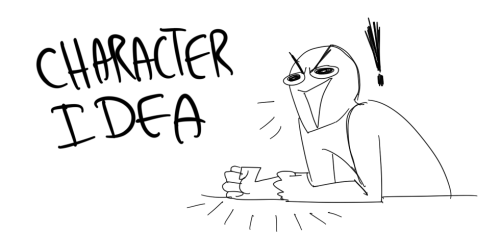
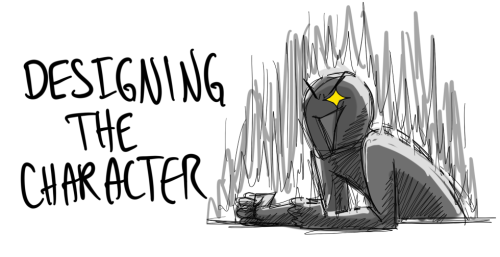
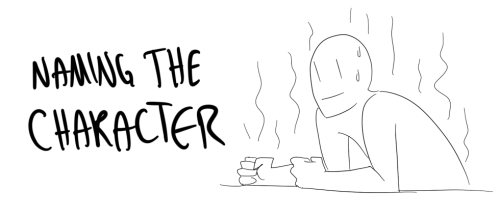
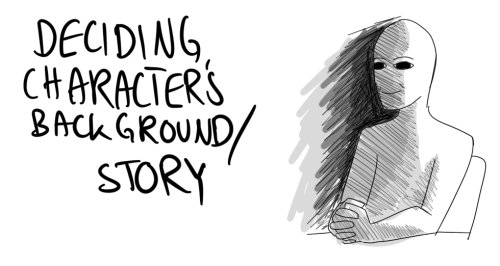
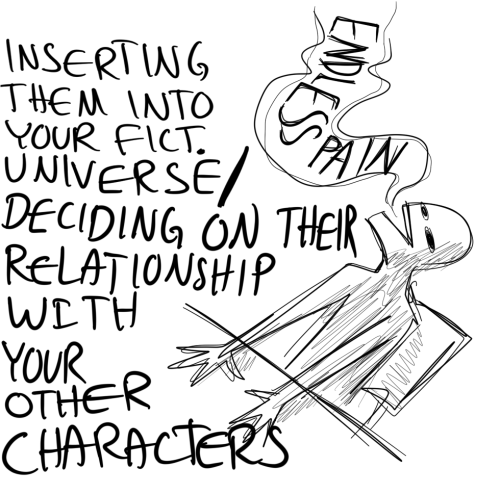
the suffering never ends
More Posts from Sparklingsilvermagnolias and Others
Ursula K. Le Guin on How to Become a Writer.

How do you become a writer? Answer: you write.
It’s amazing how much resentment and disgust and evasion this answer can arouse. Even among writers, believe me. It is one of those Horrible Truths one would rather not face.
The most frequent evasive tactic is for the would-be writer to say, But before I have anything to say, I must get experience.
Well, yes; if you want to be a journalist. But I don’t know anything about journalism, I’m talking about fiction. And of course fiction is made out of experience, your whole life from infancy on, everything you’ve thought and done and seen and read and dreamed. But experience isn’t something you go and get—it’s a gift, and the only prerequisite for receiving it is that you be open to it. A closed soul can have the most immense adventures, go through a civil war or a trip to the moon, and have nothing to show for all that “experience”; whereas the open soul can do wonders with nothing. I invite you to meditate on a pair of sisters. Emily and Charlotte. Their life experience was an isolated vicarage in a small, dreary English village, a couple of bad years at a girls’ school, another year or two in Brussels, which is surely the dullest city in all Europe, and a lot of housework. Out of that seething mass of raw, vital, brutal, gutsy Experience they made two of the greatest novels ever written: Jane Eyre and Wuthering Heights.
Now, of course they were writing from experience; writing about what they knew, which is what people always tell you to do; but what was their experience? What was it they knew? Very little about “life.” They knew their own souls, they knew their own minds and hearts; and it was not a knowledge lightly or easily gained. From the time they were seven or eight years old, they wrote, and thought, and learned the landscape of their own being, and how to describe it. They wrote with the imagination, which is the tool of the farmer, the plow you plow your own soul with. They wrote from inside, from as deep inside as they could get by using all their strength and courage and intelligence. And that is where books come from. The novelist writes from inside.
I’m rather sensitive on this point, because I write science fiction, or fantasy, or about imaginary countries, mostly—stuff that, by definition, involves times, places, events that I could not possibly experience in my own life. So when I was young and would submit one of these things about space voyages to Orion or dragons or something, I was told, at extremely regular intervals, “You should try to write about things you know about.” And I would say, But I do; I know about Orion, and dragons, and imaginary countries. Who do you think knows about my own imaginary countries, if I don’t?
But they didn’t listen, because they don’t understand, they have it all backward. They think an artist is like a roll of photographic film, you expose it and develop it and there is a reproduction of Reality in two dimensions. But that’s all wrong, and if any artist tells you, “I am a camera,” or “I am a mirror,” distrust them instantly, they’re fooling you, pulling a fast one. Artists are people who are not at all interested in the facts—only in the truth. You get the facts from outside. The truth you get from inside.
OK, how do you go about getting at that truth? You want to tell the truth. You want to be a writer. So what do you do?
You write.
Honestly, why do people ask that question? Does anybody ever come up to a musician and say, Tell me, tell me—how should I become a tuba player? No! It’s too obvious. If you want to be a tuba player you get a tuba, and some tuba music. And you ask the neighbors to move away or put cotton in their ears. And probably you get a tuba teacher, because there are quite a lot of objective rules and techniques both to written music and to tuba performance. And then you sit down and you play the tuba, every day, every week, every month, year after year, until you are good at playing the tuba; until you can—if you desire—play the truth on the tuba.
It is exactly the same with writing. You sit down and you do it, and you do it, and you do it, until you have learned how to do it.
Of course, there are differences. Writing makes no noise, except groans, and it can be done anywhere, and it is done alone.
It is the experience or premonition of that loneliness, perhaps, that drives a lot of young writers into this search for rules. I envy musicians very much, myself. They get to play together, their art is largely communal; and there are rules to it, an accepted body of axioms and techniques, which can be put into words or at least demonstrated, and so taught. Writing cannot be shared, nor can it be taught as a technique, except on the most superficial level. All a writer’s real learning is done alone, thinking, reading other people’s books, or writing—practicing. A really good writing class or workshop can give us some shadow of what musicians have all the time—the excitement of a group working together, so that each member outdoes himself—but what comes out of that is not a collaboration, a joint accomplishment, like a string quartet or a symphony performance, but a lot of totally separate, isolated works, expressions of individual souls. And therefore there are no rules, except those each individual makes up.
I know. There are lots of rules. You find them in the books about The Craft of Fiction and The Art of the Short Story and so on. I know some of them. One of them says: Never begin a story with dialogue! People won’t read it; here is somebody talking and they don’t know who and so they don’t care, so—Never begin a story with dialogue.
Well, there is a story I know, it begins like this:
“Eh bien, mon prince! so Genoa and Lucca are now no more than private estates of the Bonaparte family!”
It’s not only a dialogue opening, the first four words are in French, and it’s not even a French novel. What a horrible way to begin a book! The title of the book is War and Peace.
There’s another Rule I know: introduce all the main characters early in the book. That sounds perfectly sensible, mostly I suppose it is sensible, but it’s not a rule, or if it is somebody forgot to tell it to Charles Dickens. He didn’t get Sam Weller into The Pickwick Papers for ten chapters—that’s five months, since the book was coming out as a serial in installments.
Now, you can say, All right, so Tolstoy can break the rules, so Dickens can break the rules, but they’re geniuses; rules are made for geniuses to break, but for ordinary, talented, not-yet-professional writers to follow, as guidelines.
And I would accept this, but very very grudgingly, and with so many reservations that it amounts in the end to nonacceptance. Put it this way: if you feel you need rules and want rules, and you find a rule that appeals to you, or that works for you, then follow it. Use it. But if it doesn’t appeal to you or doesn’t work for you, then ignore it; in fact, if you want to and are able to, kick it in the teeth, break it, fold staple mutilate and destroy it.
See, the thing is, as a writer you are free. You are about the freest person that ever was. Your freedom is what you have bought with your solitude, your loneliness. You are in the country where you make up the rules, the laws. You are both dictator and obedient populace. It is a country nobody has ever explored before. It is up to you to make the maps, to build the cities. Nobody else in the world can do it, or ever could do it, or ever will be able to do it again.
Excerpted from THE LANGUAGE OF THE NIGHT by Ursula K. Le Guin. Copyright © 1989 by Ursula K. Le Guin.
I recommend Le Guin's book about writing, Steering the Craft:

Often, men will say something like : "Who built this world? Men! Who created everything, all the technology, the great art, the culture, our societies? Who built the roads you drive on? Men!" and feminists will respond "That's because you didn't let us work or make art!" and... that's just wrong? Why are you validating the idea that women didn't contribute anything to the world? That we didn't work? That we didn't innovate? And why are you approving the nonsense that says being a mother is not work?
Don't let men rewrite history.





























Women have always worked the double shift; outside of home and inside of home.
Things women created and discovered!
All men
Francium (elemental)
Torpedoe radio guidance/navigation systems
Dishwasher
GPS
Wi-fi
Structure of the Milky Way
Kevlar
The Earth's inner core
Aciclovir - an antiviral drug used for the treatment of herpes simplex virus infections, chickenpox, and shingles
Azathioprine - an Immunosuppressive drug used in rheumatoid arthritis, Crohn's disease, ulcerative colitis, and in kidney transplants to prevent rejection
Flossie Wong-Staal was the first scientist to clone HIV and map its genes.
Pyrimethamine was initially developed by Nobel Prize winning scientist Gertrude Elion as a treatment for malaria.
Disposable diapers
Child carriers
Vaccine for whooping cough
The galaxy rotation problem - important to the discovery of dark matter
Radio astronomy - Type I and Type III solar radio bursts
That stars are primarily composed of hydrogen and helium
The new outer arm of the Milky Way - In 2004, astrophysicist and radio astronomer Naomi McClure-Griffiths identified a new spiral arm of the Milky Way galaxy
Radiation
Radon (elemental)
Kinetic energy
Heavy elements in cosmic radiation
Beta particles are electrons
Nuclear shell
Astatine (elemental)
Nuclear fission - helped in the creation of nuclear weapons
Rhenium (elemental)
Seaborgium (elemental)
Polonium and radium (elemental)
Scotchgard
Structure of vitamin B12
Carbon Dioxide
Bioorthogonal chemistry - the concept of the bioorthogonal reaction has enabled the study of biomolecules such as glycans, proteins, and lipids.
Central heating
Square-bottomed paper bag
Correction fluid (white-out)
House solar heating
Wrinkle-free fiber
Windshield wipers
Car heater
Airplane mufflers
Underwater telescopes for warships
Written computer program
Written (programming) language
Chocolate chip cookies
Pizza saver
Mint chocolate chip ice cream
DNA structure
Sex chromosomes
Lactic acid cycle
Transporsable elements
Gap genes
Myers - Briggs Type Indicator
How do I write a girldad? Because I saw a severe lack of girldad prompts in your writing prompts.
How to write a girldad
To create a multidimensional girldad character there are some things to consider:
Make the character show love and attention to his daughter(s).
He is proud of everything his daughters do and encourage them to achieve their dreams and simply do what they want to do.
Listening to his daughters concerns, and giving advice if it is wanted.
Being protective of his daughters, but knowing that they also need to respect their independence and the decisions they make.
Being involved in their lives, knowing who their friends are and how they are doing in school and in sports.
Treating other women in his life with respect, showing his daughters the right standard.
That the daughters are getting older may be difficult for the girldad, but he copes and learns to adapt to their new lives.
How to show their good relationship:
Including light-hearted and playful conversations to show their close bond.
Giving them sincere and loving exchanges.
Showing everyday interactions, like discussing school, friends, or plans for the weekend.
Having him give attention and affection to his daughters even in public.
Showing that the daughter's female friends also feel comfortable with the dad.
Having them share a hobby, especially one that is considered more feminine.
More: Masterpost: How to write a story
I hope you have fun with this! I'm thinking about making a prompt list for a girldad, so maybe there is something coming in the future.
- Jana
Hey, random writing tip: Instead of having something be a ridiculously unlikely coincidence, you can make the thing happen due to who this particular character is as a person. Instead of getting stuck on "there's no logical reason to why that would happen", try to bend it into a case of "something like this would never happen to anybody but this specific fucker." Something that makes your reader chuckle and roll their eyes, going "well of course you would."
Why would the timid shy nerd be at a huge sketchy downtown black market bazaar? Well, she's got this beetle colony she's raising that needs a very specific kind of leaf for nest material, and there only place to get it is this one guy at the bazaar that sells that stuff. Why would the most femininely flamboyant guy ever known just happen to have downright encyclopedic knowledge about professional boxing? Well, there was this one time when he was down bad for this guy who was an aspiring professional boxer...
I know it sounds stupidly obvious when written out like this, but when you're up close to your writing, it's hard to see the forest for the trees. Some time ago I finished reading a book, where the whole plot hinges on character A, who is 100% certain that character B is dead, personally getting up and coming down from the top rooms of a castle, to the gates, at 3 am, to come look at some drunk who claims to be this guy who died 17 years ago. Why would A do that, if he's sure that B is dead?
Because he's a Warrior Guy from a culture of Loyalty And Honour, and hearing that someone's got the audacity to go about claiming to be his long-lost brother in battle, there is no other option than to immediately personally go down there to beat the ever-loving shit out of this guy. Who then turns out to actually be character B, after all.
Hey, look at me. Look at me. I’ve said it once and I’ll say it again: you need to condition yourself to being okay with being inconvenienced by things. The first time I spoke about this I meant it in a mental health way- it is good to go out to the store and see people versus just ordering alone at home- but there is another more pressing societal issue you should be more concerned about as well.
Any service you rely on for convenience can be weaponized against you the moment you begin to rely on it. Streaming used to be a cheap and convenient way to see movies at home. It is now exorbitantly expensive, you need multiple accounts just to get what you want, and any of those movies can be taken from you at any time. And unless you have gotten used to going through the “inconvenience” of owning physical media, you can do nothing about it. Same goes for buying things on Amazon. Same goes for any service like DoorDash etc. These companies WANT you to be reliant on them for convenience so they can do whatever they want to you because, well, what else are you gonna do?
Same thing goes for the uptick in AI. If you train yourself to become reliant on AI for doing basic things, you will be taken advantage of. It is only a matter of a couple years before there are no free AI services. Not only that, but in the usage of AI’s case, it is robbing you of valuable skills that you need to curate that you will be helpless without the moment the AI companies drive in the knife the way they have done with streaming. Delivery. Cable. Internet. Etc. It will happen to AI too. And if you are not practicing skills such as. Writing. You are not only going to be at the mercy of AI companies in the digital world, but you are going to be extremely easy to take advantage of in real life too.
I am begging you to let go of learned helplessness. I am begging you to stop letting these companies TEACH you helplessness. Do something like learn to pirate. It is way more inconvenient at the beginning, but once you know how, it is one less way companies can take advantage of you. Garden. Go to the thrift store (older clothes hold up better anyway). These things take more time and effort, yes, but using time and effort are muscles you need to stretch to keep yourself from being flattened under the weight of our capitalist hellscape.
Inconvenience yourself. Please. Start with only the ways you are able. Do a little bit at a time. But do something.
Subtle Ways a Smart Character Shows They're Smart
✧ They notice what isn’t said. The gap. The silence. The missing piece.
✧ They explain complex things in the simplest words. No ego, just clarity.
✧ They pause before answering, not because they’re unsure, but because they’re calculating what not to say.
✧ They remember names. Tiny details. The kind of stuff people don’t expect anyone to keep.
✧ They don’t correct people when they’re wrong. Unless it matters. Then it’s precise.
✧ They ask smart questions and actually listen to the answers.
✧ They use sarcasm as camouflage, people underestimate snarky geniuses.
Other Words for "Look" + With meanings | List for writers
Many people create lists of synonyms for the word 'said,' but what about the word 'look'? Here are some synonyms that I enjoy using in my writing, along with their meanings for your reference. While all these words relate to 'look,' they each carry distinct meanings and nuances, so I thought it would be helpful to provide meanings for each one.
Gaze - To look steadily and intently, especially in admiration or thought.
Glance - A brief or hurried look.
Peek - A quick and typically secretive look.
Peer - To look with difficulty or concentration.
Scan - To look over quickly but thoroughly.
Observe - To watch carefully and attentively.
Inspect - To look at closely in order to assess condition or quality.
Stare - To look fixedly or vacantly at someone or something.
Glimpse - To see or perceive briefly or partially.
Eye - To look or stare at intently.
Peruse - To read or examine something with great care.
Scrutinize - To examine or inspect closely and thoroughly.
Behold - To see or observe a thing or person, especially a remarkable one.
Witness - To see something happen, typically a significant event.
Spot - To see, notice, or recognize someone or something.
Contemplate - To look thoughtfully for a long time at.
Sight - To suddenly or unexpectedly see something or someone.
Ogle - To stare at in a lecherous manner.
Leer - To look or gaze in an unpleasant, malicious way.
Gawk - To stare openly and stupidly.
Gape - To stare with one's mouth open wide, in amazement.
Squint - To look with eyes partially closed.
Regard - To consider or think of in a specified way.
Admire - To regard with pleasure, wonder, and approval.
Skim - To look through quickly to gain superficial knowledge.
Reconnoiter - To make a military observation of a region.
Flick - To look or move the eyes quickly.
Rake - To look through something rapidly and unsystematically.
Glare - To look angrily or fiercely.
Peep - To look quickly and secretly through an opening.
Focus - To concentrate one's visual effort on.
Discover - To find or realize something not clear before.
Spot-check - To examine something briefly or at random.
Devour - To look over with eager enthusiasm.
Examine - To inspect in detail to determine condition.
Feast one's eyes - To look at something with great enjoyment.
Catch sight of - To suddenly or unexpectedly see.
Clap eyes on - To suddenly see someone or something.
Set eyes on - To look at, especially for the first time.
Take a dekko - Colloquial for taking a look.
Leer at - To look or gaze in a suggestive manner.
Rubberneck - To stare at something in a foolish way.
Make out - To manage to see or read with difficulty.
Lay eyes on - To see or look at.
Pore over - To look at or read something intently.
Ogle at - To look at in a lecherous or predatory way.
Pry - To look or inquire into something in a determined manner.
Dart - To look quickly or furtively.
Drink in - To look at with great enjoyment or fascination.
Bask in - To look at or enjoy something for a period of time.


-
 kinda-wanna-kiss-your-gf reblogged this · 3 weeks ago
kinda-wanna-kiss-your-gf reblogged this · 3 weeks ago -
 theseaissilent liked this · 3 weeks ago
theseaissilent liked this · 3 weeks ago -
 sorriswiddi liked this · 3 weeks ago
sorriswiddi liked this · 3 weeks ago -
 michoislost reblogged this · 3 weeks ago
michoislost reblogged this · 3 weeks ago -
 michoislost liked this · 3 weeks ago
michoislost liked this · 3 weeks ago -
 lilacoaks reblogged this · 3 weeks ago
lilacoaks reblogged this · 3 weeks ago -
 thehds liked this · 3 weeks ago
thehds liked this · 3 weeks ago -
 still-trans-gwender reblogged this · 3 weeks ago
still-trans-gwender reblogged this · 3 weeks ago -
 still-trans-gwender liked this · 3 weeks ago
still-trans-gwender liked this · 3 weeks ago -
 cantakelife reblogged this · 3 weeks ago
cantakelife reblogged this · 3 weeks ago -
 cantakelife liked this · 3 weeks ago
cantakelife liked this · 3 weeks ago -
 krispyvoidpainter liked this · 3 weeks ago
krispyvoidpainter liked this · 3 weeks ago -
 cursivegibberish liked this · 3 weeks ago
cursivegibberish liked this · 3 weeks ago -
 kitkatthecatsheephybridontt liked this · 3 weeks ago
kitkatthecatsheephybridontt liked this · 3 weeks ago -
 kitkatthecatsheephybridontt reblogged this · 3 weeks ago
kitkatthecatsheephybridontt reblogged this · 3 weeks ago -
 thebellaedit reblogged this · 3 weeks ago
thebellaedit reblogged this · 3 weeks ago -
 shiisiln reblogged this · 3 weeks ago
shiisiln reblogged this · 3 weeks ago -
 leafas63c liked this · 3 weeks ago
leafas63c liked this · 3 weeks ago -
 voltaicdragon liked this · 3 weeks ago
voltaicdragon liked this · 3 weeks ago -
 aceofclouds23 liked this · 3 weeks ago
aceofclouds23 liked this · 3 weeks ago -
 astralspices reblogged this · 3 weeks ago
astralspices reblogged this · 3 weeks ago -
 echo-telly liked this · 3 weeks ago
echo-telly liked this · 3 weeks ago -
 rose-and-peppermint liked this · 3 weeks ago
rose-and-peppermint liked this · 3 weeks ago -
 jastervhett liked this · 3 weeks ago
jastervhett liked this · 3 weeks ago -
 uboat53 liked this · 3 weeks ago
uboat53 liked this · 3 weeks ago -
 jar-of-hearts131 reblogged this · 3 weeks ago
jar-of-hearts131 reblogged this · 3 weeks ago -
 jar-of-hearts131 liked this · 3 weeks ago
jar-of-hearts131 liked this · 3 weeks ago -
 that-weird-mime liked this · 3 weeks ago
that-weird-mime liked this · 3 weeks ago -
 heroic-archsage liked this · 3 weeks ago
heroic-archsage liked this · 3 weeks ago -
 grievingangelhopefuldemon reblogged this · 3 weeks ago
grievingangelhopefuldemon reblogged this · 3 weeks ago -
 misostrio reblogged this · 3 weeks ago
misostrio reblogged this · 3 weeks ago -
 reflectionsofacreator reblogged this · 3 weeks ago
reflectionsofacreator reblogged this · 3 weeks ago -
 greekgoddessofmoon liked this · 3 weeks ago
greekgoddessofmoon liked this · 3 weeks ago -
 4lndr17 liked this · 3 weeks ago
4lndr17 liked this · 3 weeks ago -
 bluedget liked this · 3 weeks ago
bluedget liked this · 3 weeks ago -
 fa3yn liked this · 3 weeks ago
fa3yn liked this · 3 weeks ago -
 lizzie-wizard liked this · 3 weeks ago
lizzie-wizard liked this · 3 weeks ago -
 theweirdlynx liked this · 3 weeks ago
theweirdlynx liked this · 3 weeks ago -
 adhd-fandoms reblogged this · 3 weeks ago
adhd-fandoms reblogged this · 3 weeks ago -
 nightstar2009 liked this · 3 weeks ago
nightstar2009 liked this · 3 weeks ago -
 copperdwarf liked this · 3 weeks ago
copperdwarf liked this · 3 weeks ago -
 luca-is-a-pengu reblogged this · 3 weeks ago
luca-is-a-pengu reblogged this · 3 weeks ago -
 luca-is-a-pengu liked this · 3 weeks ago
luca-is-a-pengu liked this · 3 weeks ago -
 lunaerza liked this · 3 weeks ago
lunaerza liked this · 3 weeks ago -
 artwriteanimationinspo reblogged this · 3 weeks ago
artwriteanimationinspo reblogged this · 3 weeks ago -
 earthgirlaesthetic liked this · 3 weeks ago
earthgirlaesthetic liked this · 3 weeks ago

119 posts









